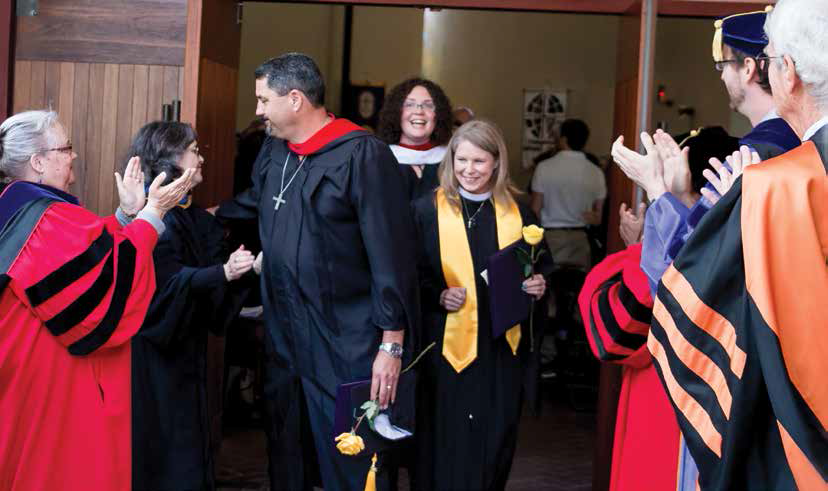|
A portion of your offering to ELCA Mission Support is sent to the ELCA churchwide organization to fund grants for the eight ELCA seminaries. |
Ask today’s new pastors about the call to serve this church, and you might be surprised by their answers.
In addition to preaching and pastoral care, they know that training in leadership, technology and finance is key to fostering a thriving congregation in our increasingly fragmented, complicated and tech-savvy world. Pacific Lutheran Theological Seminary (PLTS) in Berkeley, Calif., has crafted programs and workshops to answer the needs of today’s worshipers. The seminary’s merger with California Lutheran University (CLU), Thousand Oaks, and funding from the ELCA churchwide organization help advance this work.
 “It’s critical that pastors get this training that they haven’t usually had in seminary,” said Leanne Neilson, CLU’s provost and vice president for academic affairs. “In many ways, pastors are running a business, and they need to know how to run the finances, how to do strategic planning and how to use necessary technology.”
“It’s critical that pastors get this training that they haven’t usually had in seminary,” said Leanne Neilson, CLU’s provost and vice president for academic affairs. “In many ways, pastors are running a business, and they need to know how to run the finances, how to do strategic planning and how to use necessary technology.”
For the past three years, CLU has offered a weeklong continuing education program called “Executive Skills for Pastors.” Faculty from the School of Management explore a variety of themes for the students, including stewardship, leadership and marketing. Education in these skills has now become available to seminarians at PLTS.
On-the-job training is also crucial for candidates for ministry. Lutherans have for decades required a year of internship in a congregation as part of preparation for ministry. PLTS has taken this on-the-job learning a step further in its Theological Education for Emerging Ministries (TEEM) program. Created in response to the ELCA’s commitment to increase the number of church leaders of color, TEEM has evolved into a practical leadership certificate program for all people preparing to serve as pastors, said Moses Penumaka, the TEEM director.
The program couples a candidate for ministry with a mentor senior pastor. The student takes new learned skills and shares them with the pastor and the congregation. The TEEM student, mentor pastor and congregation all grow from this process.
Through these partnerships and other new offerings, the seminary is equipping emerging Lutheran pastors for the 21st century.
“Pastors may have a calling, but they may feel overwhelmed with all of the administrative aspects of running a congregation,” said Alicia Vargas, interim dean of PLTS. “We can give them skills and excite them about the possibilities of what they will be able to do.”
Adapted from Stories of Faith in Action
© 2015 ELCA • ELCA.org • LivingLutheran.com



